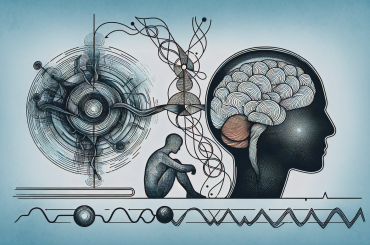How Summer Heat Waves Impact Mental Health
This summer was a scorcher, becoming one of the hottest on record.
In July 2022, a heat wave seared its way through the Midsouth and Northeast parts of the United States, bringing with it suffocating temperatures that felt as hot as 105 degrees Fahrenheit in some regions. The heat continued into August, with temperatures hitting an all-time high of 116 degrees Fahrenheit in the western parts of the country.
Such high heat can be dangerous for a person’s health — and that includes their mental health.
Heat waves can hurt mental health
The American Psychiatric Association says that extreme temperatures can negatively impact mental health, especially if someone is already struggling with a mental health concern like depression, anxiety, or suicidal thoughts. These effects are well-documented in numerous studies and surveys, which shows that extreme temperatures can influence a person’s daily mood or increase their risk for having a serious mental health crisis.
A 2022 study published in JAMA Psychiatry looked at the medical records for more than 2 million U.S. adults from 2010-2019. There were more emergency department visits for mental health concerns on days of extreme heat than on cooler days. And when temperatures got intensely high, emergency departments saw more visits for things like addictions, anxiety, stress, self-harm, schizophrenia, and delusional disorders.
A 2021 study that focused on emergency department visits in the New York area found similar results. An examination of 2.8 million emergency department visits in New York state from 2009-2016 showed that when the temperature was more than 80 degrees Fahrenheit, mental health-related emergency department visits increased. People were also more likely to visit the emergency room for mental health concerns like addictions, depression, anxiety, schizophrenia, and dementia.
And a 2008-2013 survey of 1.9 million Americans found that when temperatures were above 70 degrees Fahrenheit, the respondents were much more likely to feel less happy and more irritable than on days when it was 50-60 degrees Fahrenheit. This was especially true when the temperature was above 90 degrees Fahrenheit.
Staying safe from summer heat
With the dangers extreme heat can pose to your physical and mental health, it’s important to take precautions when temperatures start to rise. Keeping your body cool when the weather gets superhot can be a crucial part of managing your emotional health. Ways to protect yourself during a heat wave include:
- Stay hydrated – Drinking enough water is the most important thing you can do to protect yourself from the heat. But don’t wait until you feel thirsty to drink water. When temperatures get intensely hot, it’s best to drink more water than you usually would to prevent heat-related illnesses.
- Keep your home cool – There are small things you can do around your home to help keep the environment a little cooler during a heat wave, such as covering your windows with curtains and avoiding using the stove.
- Seek air conditioning – If your home doesn’t have air conditioning, find a cool place to spend a few hours each day. Reach out to a loved one or neighbor who has air conditioning, go to a public place like a library or mall, or find a local cooling center.
- Limit outdoor activity – During a heat wave, keep your outdoor activities to a minimum and schedule anything you have to do outside for cooler times of day, like the morning or evening. When you are outside, be sure to pace yourself by starting slowly and monitoring your body for any signs of heat exhaustion or heatstroke.
There is undoubtedly a connection between the mind and body, and protecting the body from harm can also protect your emotional well-being. Taking precautions during extreme heat events isn’t just good for your physical health — it may also be a crucial act of self-care.
About Life Healing Center
Life Healing Center provides residential treatment for adults who are struggling with mental health concerns, substance use disorders, and the effects of trauma. Located on 7 acres within the foothills of the Sangre de Cristo Mountains, Life Healing Center’s Santa Fe, New Mexico, campus is a safe, serene space that fosters inner growth and personal transformation. Clinically excellent, trauma-focused services and an unwavering commitment to inclusivity set Life Healing Center apart as a leader in behavioral health treatment. For more information, please visit www.life-healing.com.







